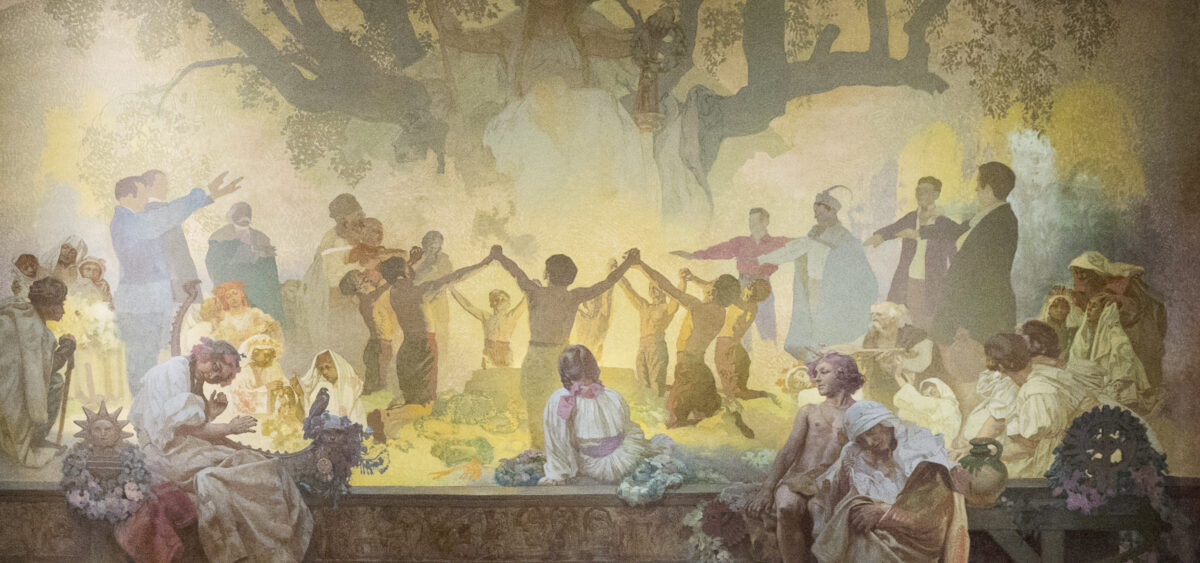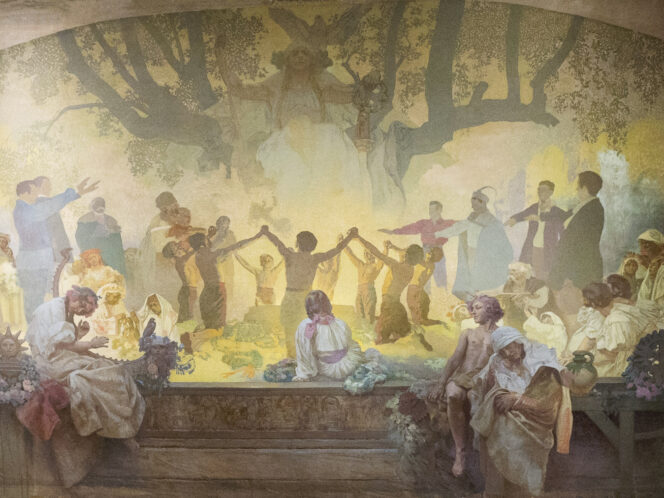
From Gothic folklore to a national manifesto—this is the story of how one mid-nineteenth century Polish book traveled across languages and into the center of the modern Belarusian literary canon, as well as the country’s contemporary politics.
The short stories contained within it are reminiscent of Gogol, Mary Shelley’s Frankenstein, and the Arabian Nights. Over the hills and far away, somewhere on the northwestern borderlands of the Polish imaginary, there once was a happy land. At the very heart of a thick forest, on the edge of an enormous lake “shaped like a limb of the sea,” there is a house, or perhaps even a manor. Every winter night a candle burns in one of its windows. It is something of a beacon for stray wanderers riding on horseback or gliding on sleighs over the frozen lake, which changes into a wide trail devoid of any orientation points or guideposts during the winter. When snowstorms rage, the little flickering flame becomes the only hope for winter travelers, and the house itself, a safe haven. A warm meal awaits those who manage to reach its hospitable threshold, as well as a seat by the fireplace and a good night’s sleep under plump covers. There is one condition, however, set by the host himself: the guest must tell a story, and an engaging one at that. Luckily enough, the silent and the boring are not punished by beheading as in the Scheherazade tale.
Such is the starting point, or, to put it more aptly, the narrative frame of a book that is apparently part of Polish literature, even though few have heard of it in Poland. The work Nobleman Zavalnya, or Belarus in Fantastic Stories was written by Jan Barszczewski and published in four volumes in Saint Petersburg between 1844 and 1846. It could be called a local Decameron, or A Thousand and One Nights crossbred with the Old Polish gawęda, a genre of epic tale. In Nobleman Zavalnya, the role of the sultan thirsting for stories is played by the eponymous hero and host, the Polish Sir Zavalnya. It should be noted, though, that he listens to the stories of a Belarusian Scheherazade because the tales that are told by the various narrators of the book mostly originate in the remote area of Vitsyebsk in northeastern Belarus, somewhere near Polatsk and Lake Neshcharda, which lies even further to the north (today the Russian border is only three miles away). These lands have been inhabited by the Belarusian people for hundreds








